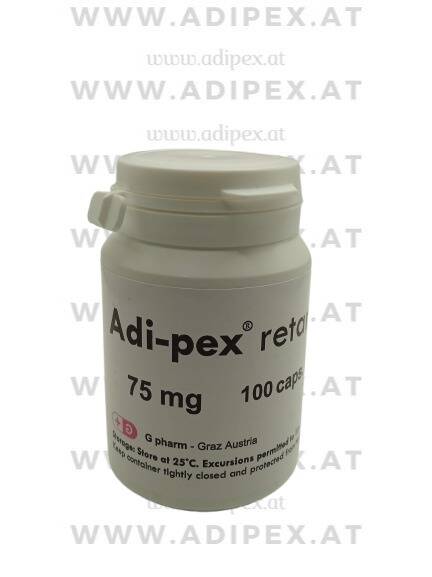Weight Loss: A Healthy Approach for Long-Term Results
Introduction
Weight loss is a process that requires discipline, patience, and lifestyle changes. Many people who decide to lose weight are looking for quick solutions to help them reach their goals. However, true and lasting success comes from gradual changes that are sustainable and healthy. This article focuses on effective and safe methods for losing weight and improving health.

1. Set Realistic Goals
A first step in weight loss is setting realistic goals. It is important to understand that weight loss is a long-term process and not something that happens overnight. Try to set measurable and achievable goals. For example, the goal could be to lose 0.5 to 1 kilogram per week or to improve your physical fitness.
Part of this process is also realistically assessing your habits and motivation. If you want to lose weight, do it because you want to improve your health, not just because of your appearance.
2. Healthy Nutrition is Key
For successful weight loss, focusing on a balanced and nutrient-rich diet is essential. Healthy eating does not mean strict diets or starving yourself. It's about creating a balanced eating plan that includes a variety of food groups. Here are some basic principles:
-
Focus on whole grains – Whole grain bread, rice, pasta, and cereals contain more fiber, which promotes digestion and keeps you feeling full longer.
-
Increase vegetable and fruit intake – Vegetables are rich in fiber, vitamins, and minerals that are essential for proper body function. Fruits are an excellent way to satisfy your sweet tooth while being full of antioxidants.
-
Healthy fats – Fats like omega-3 fatty acids found in fish, nuts, and seeds are beneficial for your health. Try to reduce the consumption of unhealthy trans fats found in processed foods.
-
Control portion sizes – A key mistake in weight loss is the lack of attention to portion sizes. Eat slowly and pay attention to feeling satisfied but not overfed.
3. Exercise is an Integral Part of the Process
In addition to diet, regular exercise is another key to successful weight loss. Physical activity not only burns calories but also improves your endurance, strengthens the heart, bones, and muscles. Regular exercise can not only help with weight loss but also improve overall well-being and energy.
-
Aerobic exercise – Running, walking, cycling, and swimming are great forms of aerobic exercise that burn calories and improve endurance.
-
Strength training – Adding strength training (with weights or your own body weight) strengthens muscles, which helps increase metabolism even at rest.
-
Flexibility and mobility – Yoga or stretching can improve flexibility, reduce stress, and help maintain a healthy musculoskeletal system.
4. Sleep and Recovery
Often overlooked, sleep is vital for weight loss. Lack of quality sleep can affect your ability to burn fat, reduce your energy, and influence the hormones that regulate appetite.
Try to get 7 to 9 hours of sleep each night and establish a healthy sleep routine that supports recovery and mental health.
5. Hydration is Crucial
Drinking enough water is essential for your health but also for effective weight loss. Water aids digestion, regulates body temperature, supports metabolism, and helps you feel full, preventing overeating.
Try to drink 2 to 3 liters of water daily (depending on your needs and physical activity).
6. Motivation and Patience
Weight loss is not a linear process. There will be days when progress seems slow or nonexistent. It's important to stay motivated and not give up. You can track your progress through measurements, photos, or by writing down your feelings and achievements.
If you fail one day, don't despair. Every day is a new beginning, and it's important to keep going.
Conclusion
Weight loss is a long-term process that requires changes in diet, exercise, and overall lifestyle. Focus on healthy, balanced nutrition, regular exercise, adequate sleep, and hydration. Be patient, set realistic goals, and don't give up at the first hurdle. The best results come from lasting changes that support your health and well-being
Adipex Retard: Effects and Uses

Adipex Retard is a medication used to aid in weight loss for individuals suffering from obesity when changes in dietary habits and increased physical activity do not yield the desired results. This medication contains the active ingredient phentermine, which belongs to the class of anorectics (appetite suppressants). It is important to note that Adipex Retard is available only by prescription and should be taken under the strict supervision of a doctor. Below are key details about its effects, benefits, and risks.
Effects of Adipex Retard:
-
Appetite Suppression:
Phentermine, the active ingredient in Adipex Retard, affects chemical processes in the brain, increasing the levels of neurotransmitters that control hunger. This results in a reduced desire for food, leading to a decrease in calorie intake. -
Increased Metabolism:
Phentermine also boosts the activity of the sympathetic nervous system, which can lead to an increased heart rate and blood pressure. These effects can enhance metabolism, meaning the body burns more calories even at rest. -
Increased Motivation for Weight Loss:
Users may experience a boost in energy and motivation to engage in exercise and other physical activities, which can be helpful in the weight loss process. These effects are particularly beneficial when it's difficult to start or maintain a healthy lifestyle.
When is Adipex Retard Used?
Adipex Retard is prescribed for adult patients who are obese (with a BMI of 30 or more) or have a BMI over 27, with additional health issues such as high blood pressure, type 2 diabetes, or sleep disorders. It is only prescribed if other weight loss methods, such as diet and physical activity, have been ineffective.
Risks and Side Effects:
While Adipex Retard can be effective for weight loss, it is not without risks and may cause the following side effects:
-
Cardiovascular Issues:
Increased blood pressure and heart rate can be problematic for individuals with existing cardiovascular conditions, such as high blood pressure, heart disease, or heart attacks. -
Psychological Effects:
Phentermine can cause side effects such as nervousness, anxiety, insomnia, and aggression. The medication may also increase the risk of dependency, especially with long-term use. -
Gastrointestinal Problems:
Many patients report nausea, dry mouth, constipation, and stomach pain. These side effects may negatively impact the quality of life during the medication's use. -
Dry Mouth and Decreased Appetite:
Users of Adipex Retard may experience dry mouth, which can be uncomfortable, as well as a decreased appetite, which can affect daily life.
Important Warnings:
-
Adipex Retard should only be used under medical supervision, especially if you have health issues like high blood pressure, heart disease, or thyroid disorders.
-
This medication should not be combined with other appetite suppressants or stimulants, as this could lead to dangerous side effects.
-
Pregnant and breastfeeding women should avoid using this medication, as it may have adverse effects on the fetus or baby.
Conclusion:
Adipex Retard can be an effective tool for weight loss, especially for individuals suffering from obesity who have not had success with other weight loss methods.
